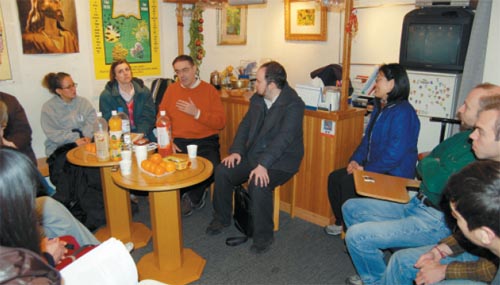
An 11-year-old North Korean boy living alone a half-demolished home in China was found nearly dead from food poisoning after eating food found in the garbage. His refugee mother was arrested by Chinese authorities and returned to North Korea, and his Chinese father has no contact with him.
So, watching the boy improve after months in a foster home in northeastern China brings great pleasure to humanitarian aid worker Tim Pieters.
“He was surprisingly spontaneous, even smiled at us,” said Pieters, a Christian activist and reverend based in Seoul, speaking of his recent visit to the foster home. “It’s natural. Nobody teaches him to smile.”
The boy, whose name was kept anonymous due to security reasons, is one of tens of thousands of North Korean children that human rights activists say are abandoned in China, a population Pieters counts as among the most vulnerable and disregarded in the world.
And foster homes clandestinely managed by humanitarian activists to dodge Chinese authorities are slowly gaining a foothold as safehouses for these children.
According to human rights groups, as many as 70 percent to 80 percent of North Korean female refugees in China are sold as sex slaves or forced to married Chinese men. They are paid $500 to $1,000 for such an arrangement, but they don’t do it just for money; they need Chinese men to protect them from being sent back to North Korea.
Most children born of North Korean women and Chinese men are denied access to many aspects of Chinese society, including legal residency in China, education and national health care, because their mothers are not legal residents and their fathers usually don’t take on parental responsibility.
Once their mothers are arrested and sent back to North Korea, the children’s lives worsen. About 25,000 North Korean children live such a life in China, Pieters said.
READ MORE: http://joongangdaily.joins.com/article/view.asp?aid=2933107
